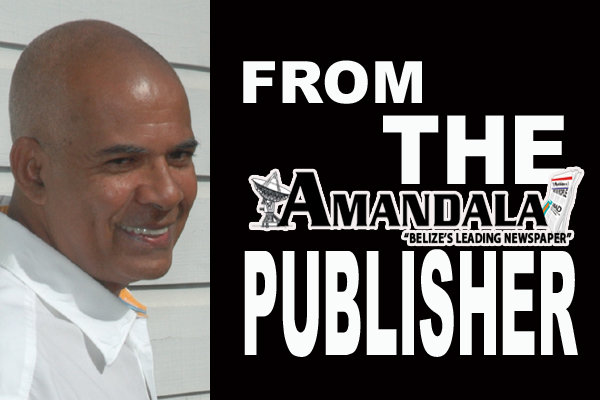In the beginning of the People’s United Party (PUP) in 1950, built as it was on the foundation of the General Workers Union (GWU), a lot of the difference between PUP supporters and anti-PUP Belizeans in the then capital city of Belize, manifestly involved class. All waterfront workers and bicycle cart men, for instance, were PUP, while almost all the public officers (who were called “civil servants” in those days) opposed the PUP, first through the National Party (NP) and then through the National Independence Party (NIP).
Early on, the PUP was centered in Belize City, but after Hon. George Price became the Leader of the party in 1956, he did a lot of traveling to the District towns and villages. He, in effect, enfranchised rural Belizeans politically; he personally involved them in the business of building the new nation of Belize.
Every action has an equal and opposite reaction, the physicists say, and Mr. Price’s revolutionary politics was branded “Latinization” by his opponents. It cost him some support in Belize City. There was a Belize City Council election in 1958 where the PUP barely won, with five seats out of the nine, if I remember correctly. One of the four NIP candidates to be elected to the new CitCo was Carl Lindbergh Bernard Rogers, known as “Lindy,” or “C. L. B.” Sometime in 1959 or 1960, however, Rogers defected from the NIP, led at the time by Herbert Fuller, and joined the PUP, in time to win the Mesopotamia seat in the March 1961 general elections, and actually topping the polls for the PUP in the 1961 Belize City Council election, an election in which Mr. Price himself was a PUP candidate.
The indications are that Mr. Rogers brought an amount of Belize City credibility back to the PUP. He was a roots guy who had come up the hard way in the city streets. He was a tough guy who was also very, very sharp. By the latter part of the 1960s he had replaced Mr. Albert Cattouse, Sr., as Mr. Price’s Deputy Premier and his Southside muscle.
In those days the Southside sent only three representatives to the House – Albert, Collet, and Mesopotamia. Albert began going NIP in 1965, while Collet went narrowly PUP from 1961 to 1979. Rogers’ Mesopotamia seat gave the PUP a 2-1 edge in the Southside from 1961 to 1979, when he lost Mesop to Curl Thompson of the United Democratic Party (UDP), which had replaced the NIP in 1973.
For the record, there were also three Northside City seats back then – Fort George, Freetown, and Pickstock. And these would always go PUP, sending Mr. Sandy Hunter, Mr. Price, and Gwendolyn “Madame Liz” Lizarraga, respectively, to the House throughout the 1960s. In the 1960s, there was no discernible socio-economic difference between the Northside and the Southside: that difference only became clear in the mid-1990s.
By mid-1984, however, Rogers and the PUP’s Collet area representative, Harry Courtenay, were both political history, and the ruling PUP introduced a new alignment of electoral constituencies in the nation. The number of House seats was increased from 18 to 28, with 10 going to Belize City, of which 6 were on the Southside. The UDP proceeded to win all 6 Southside seats in the 1984 general election, and today in 2015 the Southside is an outright UDP stronghold. So much is this the case in the third millennium that frustrated leaders of the PUP talked publicly about ignoring the old capital and concentrating on the Districts after the 2012 general election. In the 2012 general election, there was, for reason(s) still not satisfactorily explained, an unprecedented disparity between Belize City and District voting, where Belize City seats went mostly red, whereas District seats went mostly blue.
The results of the national municipal elections earlier this month showed that Belizean voters nationwide had essentially returned to thinking and voting the same way, as had been the case before 2012. As the PUP approaches the next general election, then, one would suppose that they have to pay attention to the Southside seats.
Looking back, we can see and say that the final push to independence in 1981, and the three years following independence, featured an attitudinal change in PUP leadership and decision making. The Heads of Agreement document, signed in March of 1981, made Belize’s independence possible in September of that year, but that same document had brought Belize to the brink of civil war in early April. The PUP had been forced to go into a kind of war mode, and because of that war mode there were personalities who became influential in the PUP narrative whose vision of the Belizean people was that of sheep to be led, rather than that of partners in the “peaceful, constructive revolution.” These individuals became even more prominent in the party after the PUP lost power for the first time in 1984. None of these individuals could be considered Southside, as Rogers and Courtenay had been. In fact, I would dare to say their record has been anti-Southside.
The PUP has not won any kind of election since 2003. The results of the March 4 national municipal elections indicate that the ruling UDP has done a pretty good job of re-establishing its credibility in the Districts. Some of the PUP’s pre-election propaganda argued that the UDP was spending all of the Petrocaribe money in its Belize City stronghold. The voting patterns on March 4 show that such a propaganda did not work.
The PUP, as a Belizean political party, needs to examine itself. They can start with checking the first word in their chosen name – “People’s,” and move from there to the case of the thirty-odd thousand registered voters on the Southside. The PUP should ask themselves: where did we go wrong?
Power to the people.

